
Vol. 15 No. 1 |
Summer 2005 |
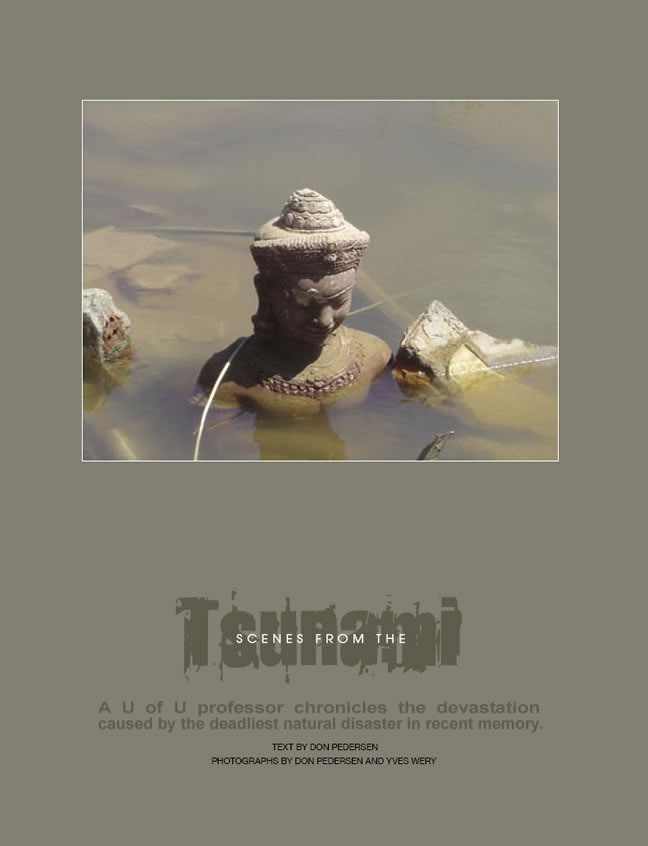
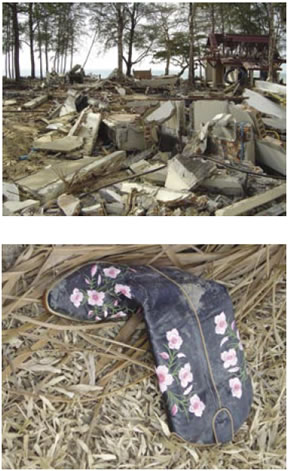 Following
last December’s devastating tsunami in Asia, Don Pedersen, a professor
in the U’s Physician Assistant Program, flew to Thailand to help with
recovery efforts. He assumed he would be providing humanitarian aid. Instead,
he was put to work in the morgue, helping to identify victims by taking
DNA samples. During his 10 days at ground zero for one of the worst natural
disasters in recorded history, Pedersen chronicled the experience by keeping
a journal and taking photographs.
Following
last December’s devastating tsunami in Asia, Don Pedersen, a professor
in the U’s Physician Assistant Program, flew to Thailand to help with
recovery efforts. He assumed he would be providing humanitarian aid. Instead,
he was put to work in the morgue, helping to identify victims by taking
DNA samples. During his 10 days at ground zero for one of the worst natural
disasters in recorded history, Pedersen chronicled the experience by keeping
a journal and taking photographs.
1/7/05
I talked with Noi (a family friend from Thailand) about how to approach
the bodies. What is the [Thai] culture surrounding death? Apparently,
Thai people encourage the spirit, which leaves the body, to move on and
not stay around to cause problems.
1/8/05
Took a taxi from Phuket through the [nearest] impact area. The destruction
is incomprehensible. There were very good precautions entering the morgue:
rubber boots, plastic suits, double gloves, disinfectant spray when leaving.
We were to receive 300 more bodies in the afternoon. They arrived at 11
a.m. The injuries were horrific—skulls fractured, limbs twisted
backwards. Faces in grotesque shapes, seemingly screaming. I keep writing
as I am afraid to close my eyes to sleep for fear of the visions I know
I will have.
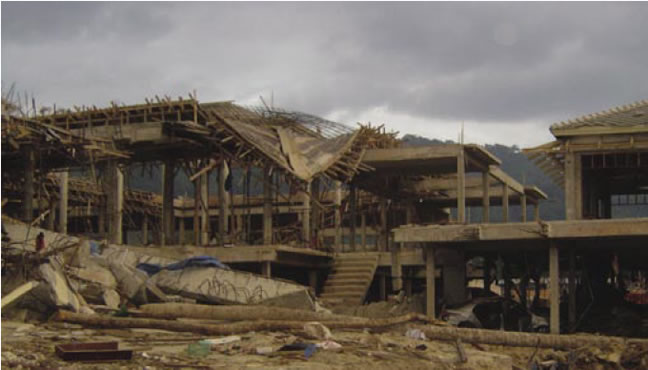
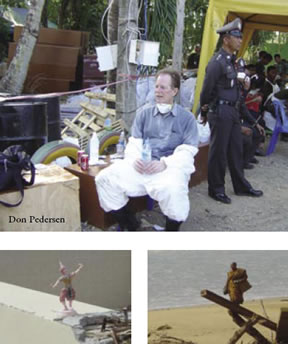 1/9/05
1/9/05
Sat for a while with a young man from Switzerland. He related that
one of the Thai military soldiers lost his parents and six siblings. Alone
now, he works carrying bodies all day long.
3 a.m. Up again unable to sleep. Thinking about the ever-present clanging of metal on metal as new [identification] tags are prepared to add to the bodies. I find myself washing and showering longer. Trying to wash the reality of this situation away.
1/10/05
Fox 13 news interviewed me today. They wanted to know [about the morgue
work], but when I told them [the reporter] cut the tape and asked that
I tone it down. We found numerous Westerners among the bodies with our
last batch. Gold chains, designer clothes, gold dental fillings.
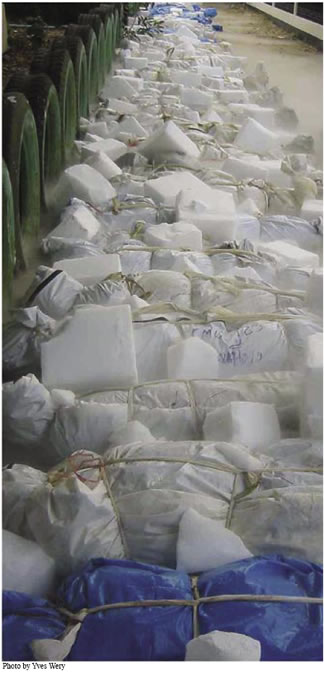
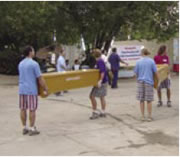
1/11/05
My Utah students want to come and help, but logistics are such a problem:
transportation, housing, language, all major issues. One group of volunteers
showed up and wanted to do “orienteering” (whatever that is)—when
they were told they could [move] bodies, they left.
This morning the work was brutal, 45 bodies on the ground in the sun. The state of them is no longer an issue. There is nothing worse than what I have already seen—mothers with their babies in the same body bag... the back of a skull disintegrating in my hands. Knowing each was a unique human being is difficult. I send them on their way as Noi instructed, to a better place.
1/20/05
[I met with] the only female monk in Thailand, Dhamanannda, and asked
for a blessing. We retreated to a quiet place in the garden where she
performed a water ceremony for me. Two cups, one full of water the other
empty. While she prayed, I poured the water from the full cup into the
empty one and then poured the water on a tree. She said she prayed that
the merits (karma) I have garnered by working with the Thai bodies protect
me and sustain me.